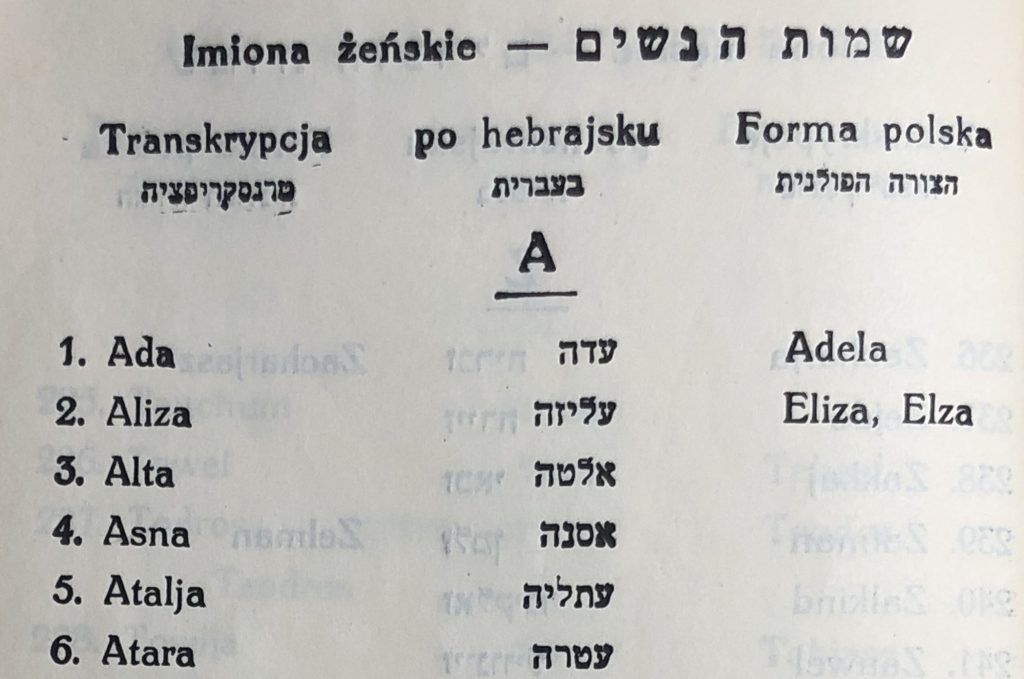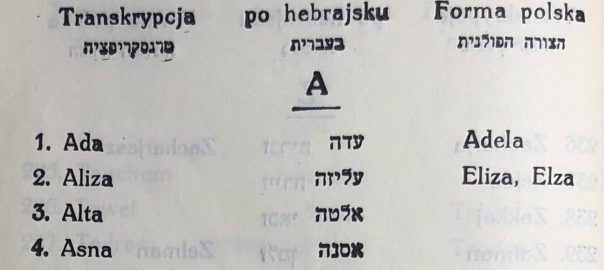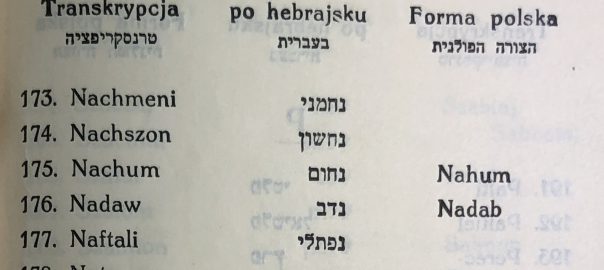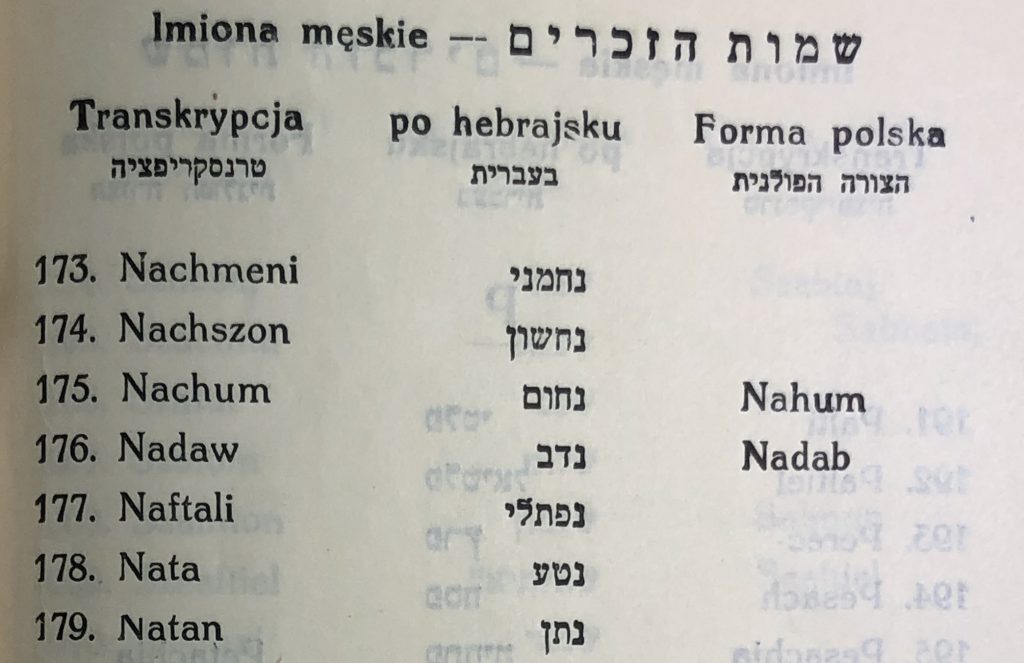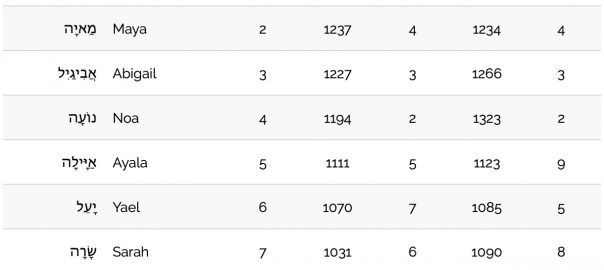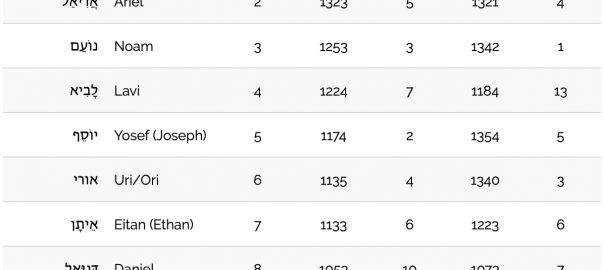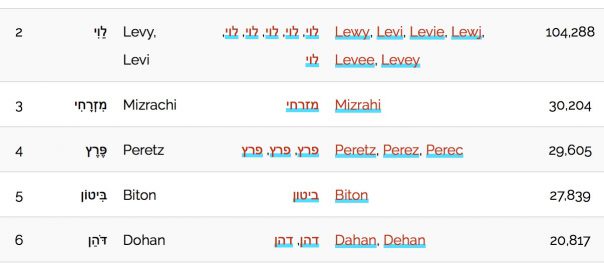I’ve been posting the 101 most common Israeli given names for both boys and girls for the last few years, as the data has been released by the Israel Central Bureau of Statistics. Recently the data for 2016 was released, and I posted the lists for girls and boys. While going through the data, however, I noticed something I had not noticed in previous years – a link to information on Israeli surnames.
The data consists of over 50,000 surnames, and the number of people with that name in Israel. The smallest number of people with a name is 9, so the least common surnames do not appear (including mine – I guess I need a few more kids to break through, or get my cousins to make aliyah). In theory this data is current as of 2016, although I suspect the top 101 names out of over 50,000 probably don’t change significantly from year to year.
Something significant worth noting is that the list is only in Hebrew, and like any other government data, has no nikudot (diacritical marks used as vowels in Hebrew), so many times names that would be considered different in English are spelled the same in Hebrew.
Sometimes those names have a common origin, such as פלד which could be Feld or Peled. Peled is actually a Hebraization of Feld, so that’s not such a big deal, although many times changes in spelling are useful in genealogy research in detecting different branches of the same family. Sometimes the same family uses different spellings, but many times different families used the same spelling for many years, and this merging of names can be frustrating when researching one’s family history. Consider the most common name כהן which in English could be spelled Cohen, Kohen, Cohain, Cohn, Kohn, Cahan, etc.
When I publish my lists of given names, I add nikudot to the names, since even those fluent in Hebrew might not be able to decipher the name if they’re not familiar with it. Reading without nikudot requires some familiarity with the words you’re reading. If the name is not familiar, it’s not possible in some cases to figure it out. Some given names also use the same spelling, such as אורי which can be Uri or Ori. The problem is significantly worse for surnames, however, where many more variations exist.
As officially names in Israel are written without nikudot, it creates a genealogical problem that documents with names don’t actually reflect what a person called themselves. If you are researching someone whose name is recorded as אורי פלד, is their name Ori Peled, Uri Feld, Ori Feld, or Uri Peled? That’s not a problem I can solve, but what I’ve done with the following list of the 101 most common Jewish Israeli surnames is added nikudot for one common pronunciation, added a few possible English spellings, and linked to all the surname articles at Beit Hatfutsot (in English this was formerly called the Diaspora Museum, but is now called the Museum of the Jewish People) that are for names that use the Hebrew spelling, as well as the English versions of those articles.
Continue reading 101 Most Common Surnames in Israel (in 2016) →
